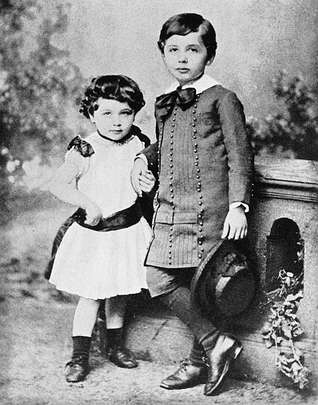
A university professor challenged his students with this question, "Did God create all that exists?"
A student answered valiantly: "Yes, He did".
"Did God create all?", asked again the professor.
"Yes, Sir." Answered the youth.
The professor answered, "If God created all, then God made evil, since evil exists, and under the precept that our works are the reflection of ourselves, then God is evil".
The student kept quiet before such answer, and the professor, happy, bragged to have proven, once again, that faith was a myth.
Another student raised his hand and said: "May I ask you a question, professor?"
"Of course", answered the professor. The youth stood up and asked: "Professor, Does cold exist? "
"Of course", answered the professor. The youth stood up and asked: "Professor, Does cold exist? "
"What a question is that? Of course it exists, have you not had cold?"
The boy answered, "Of course, Sir, cold does not exist. According to Physics what we consider cold is in reality the absence of heat. Each body or object is susceptible of study when it has or it transmits energy, heat is what makes such body to have or to transmit energy. We have created such term to describe how we feel if we have not heat."
“And, does darkness exist?", continued the student.
The professor answered: "Of course!"
The student answered: "Again you're wrong, Sir, darkness does not exist either, it is in reality the absence of light. Light can be studied, darkness cannot, even exists the Nichols' prism to decompose white light into the various colors in which it is composed, with their different wavelengths. Darkness cannot. A simple ray of light tears darkness and illumines the surface where the light beam ends. How could I know how dark is a specific space? Based on the amount of light present in that space, is it not?. Darkness is a term that man has developed to describe what happens when there is not light present."
Finally the youngster asked the professor: "Sir, does evil exist?"
The professor answered: "Of course it exists, as I mentioned at the beginning, we see violations, crimes and violence all over the world, those things are of evil".
To which the student answered: "Evil does not exist, Sir, or at least it does not exist in itself. Evil is simply the absence of God, is, same as the previous cases, a term that man has created to describe the absence of God. God did not create evil. It is not as faith or love that exist as exist heat and light. Evil is the result of humanity not having God present in their hearts. It is as cold results when there is no heat, or darkness when there is no light."
Then the professor, after nodding, remained silent.
The young student was called "ALBERT EINSTEIN”.

Thanks to his theory of relativity, Albert Einstein became the most famous scientist of the 20th century. In 1905, while working in a Swiss patent office, he published a paper proposing a "special theory of relativity," a groundbreaking notion which laid the foundation for much of modern physics theory. (The theory included his famous equation e=mc².) Einstein's work had a profound impact on everything from quantum theory to nuclear power and the atom bomb. He continued to develop and refine his early ideas, and in 1915 published what is known as his general theory of relativity. By 1920 Einstein was internationally renowned; he won the Nobel Prize in 1921, not for relativity but for his 1905 work on the photoelectric effect. In 1933 Einstein moved to Princeton, New Jersey, where he worked at the Institute for Advanced Studies until the end of his life. Einstein's genius is often compared with that of Sir Isaac Newton; in 2000 Time magazine named him the leading figure of the 20th century.
Cold is the absence of heat, darkness is the absence of light, hate is the absence of love, disbelieve is the absence of faith, pessimism is the absence of hope, evil is the absence of God. Only God exists who contains love, faith, hope, heat and light. Coldness, darkness, hate, disbelieve, pessimism, evil and all the negative qualities of the human nature do not exist, they are only relative terms to represent how much of what do exist is present. —Luis Prada
No comments:
Post a Comment